Cannes 2024: Defected Iranian Director Rasoulof’s Bold New Film Premieres Amid Exile
Defected Iranian Film Director Mohammad Rasoulof’s new film, “The Seed of the Sacred Fig,” debuted at the Cannes Film Festival on Friday. Revolving around a judge named Imam in Tehran’s Revolutionary Court, the film captures the gradual loss of justice with the rise of political tensions and Imam’s struggle to maintain his integrity in an oppressive regime.

Mohammad Rasoulof became the newest in a long line of dissident artists last week when he fled Iran, just hours after the government sentenced him to eight years in prison for allegedly colluding against national interests. The rebel filmmaker has already served two prior prison sentences due to his refusal to cease making films that critique Iran’s repressive politics.
Although “The Seed of the Sacred Fig” received tremendous applause at Cannes 2024, director Mohammad Rasoulof remained stoic, reflecting on his difficult escape from Iran. Speaking to journalists, the veteran filmmaker recalled the anxiety and uncertainty he faced during the post-production phase, amidst legal threats from Iran’s Revolutionary Court.
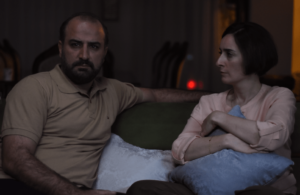
Arrested and held in Tehran’s infamous Evin Prison since July 2022 for signing a petition urging security forces to exercise caution during street protests, veteran filmmaker Rasoulof endured solitary confinement until his release on medical grounds in February 2023.
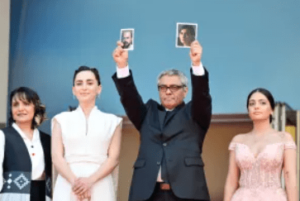
However, he has remained under house arrest ever since. Just days after finishing, he learned of an eight-year sentence from the Iranian government. Within just two hours, Rasoulof fled the country on foot, eventually reaching Germany, where he had previously sought asylum.
Quoting The Hollywood Reporter, he said, “It was quite clear for me that what mattered most now was to go on making films and telling my stories. I had more stories to tell, and nothing could stop me from telling them.”
Mohammad Rasoulof’s escape highlights Iran’s crackdown on critics
Speaking to reporters, an Iranian film director recounted his arduous journey across the mountain border after deciding to flee the reach of Iran’s regime last month. He had contacted his former cellmates from prison, who knew a secret border route through the mountains, and managed to leave home just hours before authorities arrived to arrest him.
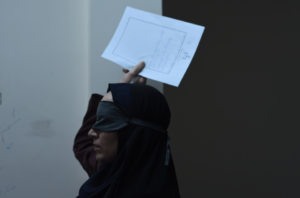
He mentioned that soon after receiving news that the appeals court had stayed the initial order of eight months in prison and a flogging by the Republican Guard, he realized he had very little time before they would come to arrest him. Within two hours, he had to decide whether to stay and potentially go to jail or flee. He chose the latter. In those two hours, he left all his electronic devices at home and was taken to a safe place before eventually crossing the border and leaving the country.
The veteran filmmaker emphasized that leaving his country was a difficult decision, but it was a small price to pay for his freedom. He highlighted that the lack of human rights is a worse fate than any other, a sad reality that millions of Iranians face every day.
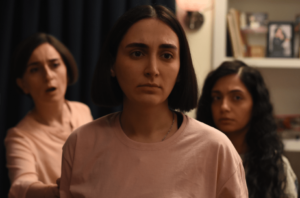
He also explained how his time in prison helped him escape the country on such short notice, saying, “In retrospect, I think that I was extremely lucky and privileged to go to prison because that’s where I met people, very useful people, who helped me to cross the border,” says Rasoulof, smiling. “I wouldn’t have been able to do it otherwise.”
On the debut of his latest controversial film, he said, “I’m happy that, in Cannes, you can get an image of people’s real lives in Iran and what’s going on now in Iran—something that has been made away from censorship, out of censorship. This is a message of hope to Iranian artists, to show that it’s possible, and they can try and reflect the reality of Iran without censorship and try to commit to this path.”
Rasoulof’s “The Seed of the Sacred Fig” is a stand against Iran’s oppression
Rasoulof’s latest cinematic venture has sparked widespread confrontations with the authoritarian regime, much like his previous films. His works often depict a view of Iran and its inner workings, free from government censorship. They frequently portray good individuals becoming prey to a regime that seeks obedient puppets rather than citizens who ask questions.
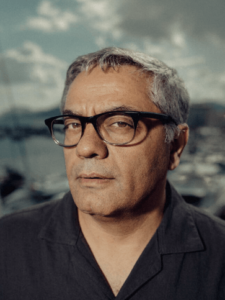
His previous films, such as “A Man of Integrity” (2017) and “There Is No Evil” (2020), had greatly angered the Tehran regime, leading the government to bar him from making further movies critical of the nation. Despite these obstructions, Rasoulof teamed up with German film editor Andrew Bird, with whom he had previously collaborated, and continued to pursue his passion for filmmaking.
Even in Europe, the filmmaker fears for his life and the safety of every actor, production member, and associate involved in the project. The three female actors in the film—Soheila Golestani, Mahsa Rostami, and Setareh Maleki—have already fled the country due to constant threats and harassment from the government.
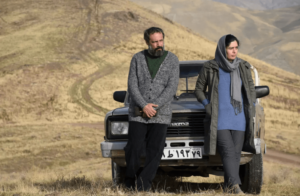
Following the deaths of Iranian President Ebrahim Raisi, Foreign Minister Hossein Amir-Abdollahian, and several others in a helicopter crash on Monday, the filmmaker stated that he is relieved, just like several others. He highlighted that the level of injustice, repression, and pressure that have been inflicted upon the people for years has prompted citizens to cheer the occurrence of such an unexpected incident.











